Adrian Soto didn’t set out to be a standout FFA member. In fact, he wasn’t even aware of the organization until his sophomore year of high school.
Growing up in Santa Rosa, California, as the youngest of six siblings, Soto’s life revolved around music and landscaping.
His grandfather was part of the Bracero program, traveling to the U.S. to work in the cotton fields, while his grandmother supported the family by washing laundry. His family had immigrated to the U.S. from a ranch in Mexico in 2008, and from an early age, he was immersed in the traditions of mariachi.
His father, Jose, had played the violin in a mariachi band since he was 14, and when the family moved, they brought their music with them.
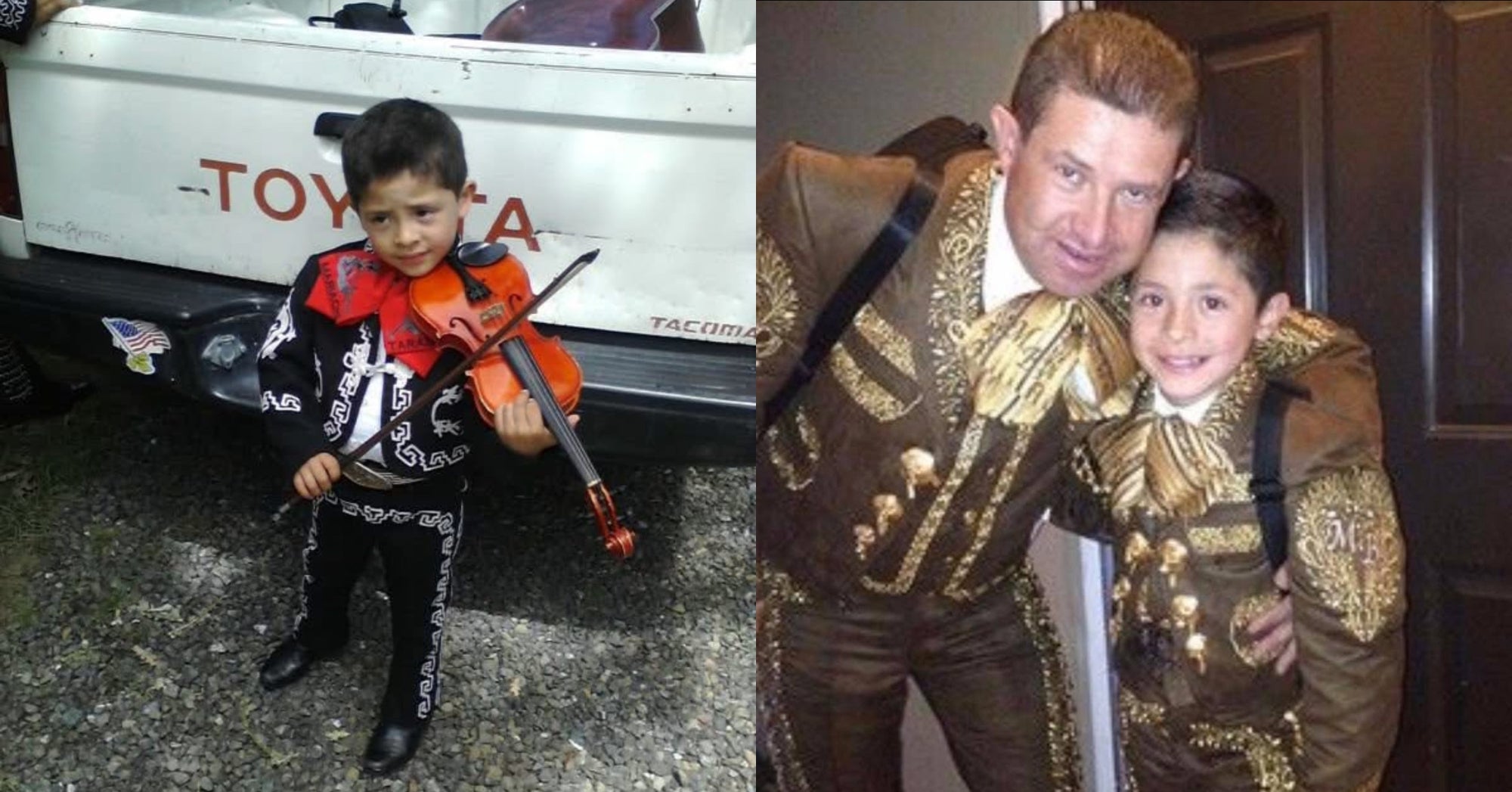
On weekends, Soto’s older brothers performed at gigs to help support the family, and he often tagged along, violin in hand. By the time he reached high school, he was a full-fledged member of their mariachi group. Meanwhile, the family had also taken over a landscaping business, which deepened their connection to agriculture and outdoor work.
Still, FFA wasn’t something Soto thought much about at first. His freshman year was spent online due to the pandemic, so it wasn’t until his sophomore year that he realized what the organization had to offer. Even then, he mostly ignored discussions about proficiency projects — until his junior year.
Soto’s teachers knew he was musically talented before he did. At school, he was quiet, keeping to himself while focusing on his studies. But once they learned that he could sing and play in a band, they saw an opportunity.
“They were like, ‘Dude, do you play?’ I was like, ‘Yeah, I do,’ ” Soto recalled.
That’s when his teachers told him about the FFA state talent contest. At first, he wasn’t interested. Even when encouraged to send in a video, he did so only for the extra credit. He didn’t think much of it — until the officers at an FFA conference in Sacramento told him his submission was one of their favorites.
Soon after, he received an email confirming that he had been chosen as one of the 14 students for the contest.
“Hopefully, I don’t get picked,” he had thought at the time. But he was, and he had no choice but to follow through.
His first audition nearly didn’t happen. A mix-up on the date meant he arrived just in time to perform. Later that evening, he received a text confirming that he had moved on to the next round. The following day, he performed again. That night, during an FFA session, his name was called — he had made it to the final round.
The final performance paired him against another talented musician, Zina from Brentwood FFA. After the audience vote, Soto was declared the winner.
A bigger platform ahead
Winning at the state level meant Soto would go on to compete at the national level in Indianapolis at the 96th Annual National FFA Convention. This time, he was determined to do it his way.
“I really need to sing with my mariachi suit and my hat,” he told his teachers. “Because I’m like, there’s no point in singing mariachi music without the whole little setup.”
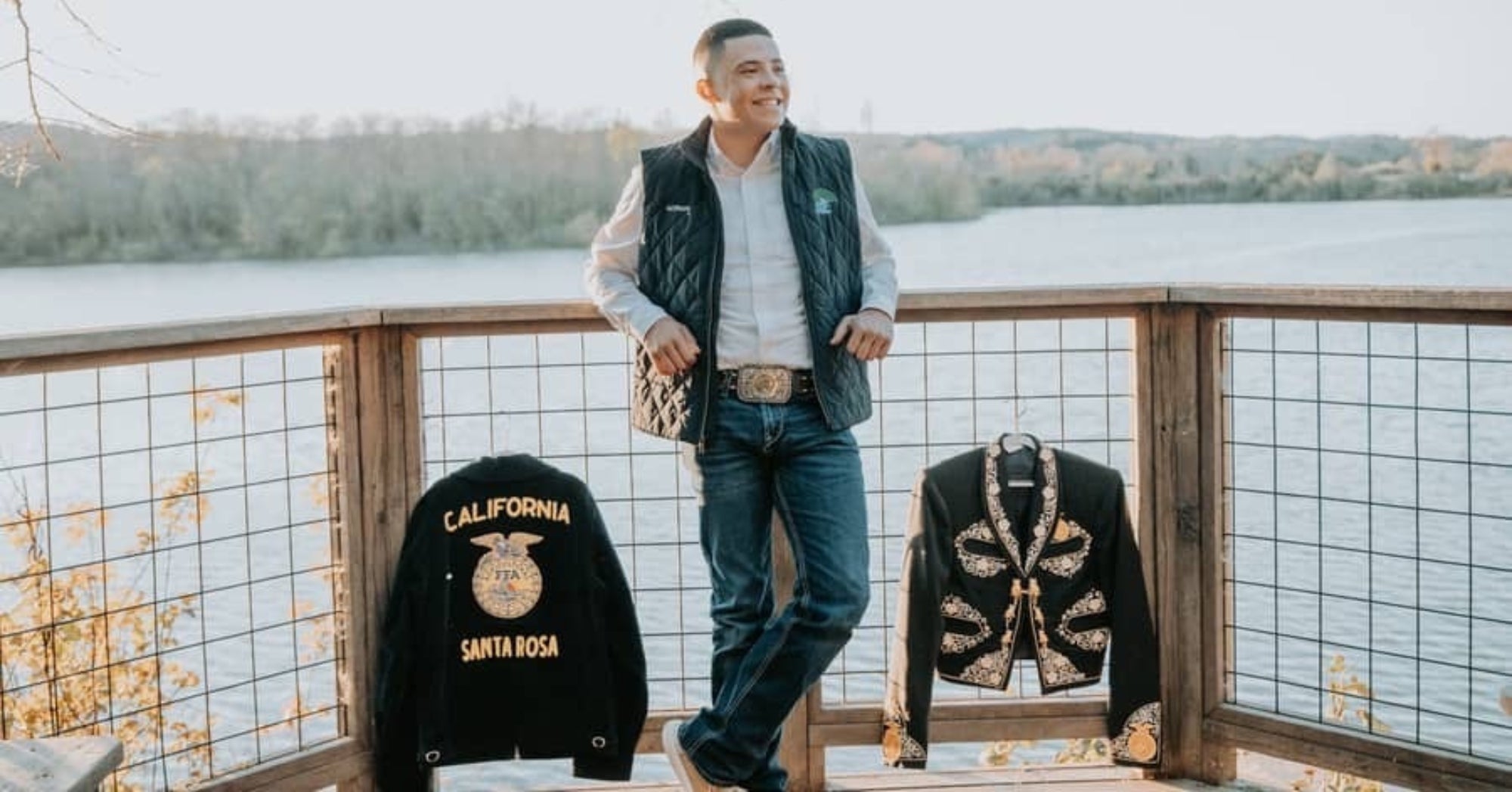

Initially, there were concerns about whether FFA would allow him to perform in full mariachi attire instead of the standard FFA jacket and black pants. But after discussions, it was approved. Soto wasted no time — he reached out to a tailor who specialized in mariachi outfits, ordering a new suit designed to incorporate FFA elements.
Designed by the same tailor responsible for outfitting the renowned ensembled known as Mariachi Vargas, the suit featured intricate details that blended tradition with symbolism. The silver botonadura — the ornamental metalwork lining the pants — was custom-designed to include FFA’s iconic owl, signifying wisdom and leadership. Soto also had a matching hat made, ensuring his presence on stage reflected not just his music, but his roots.
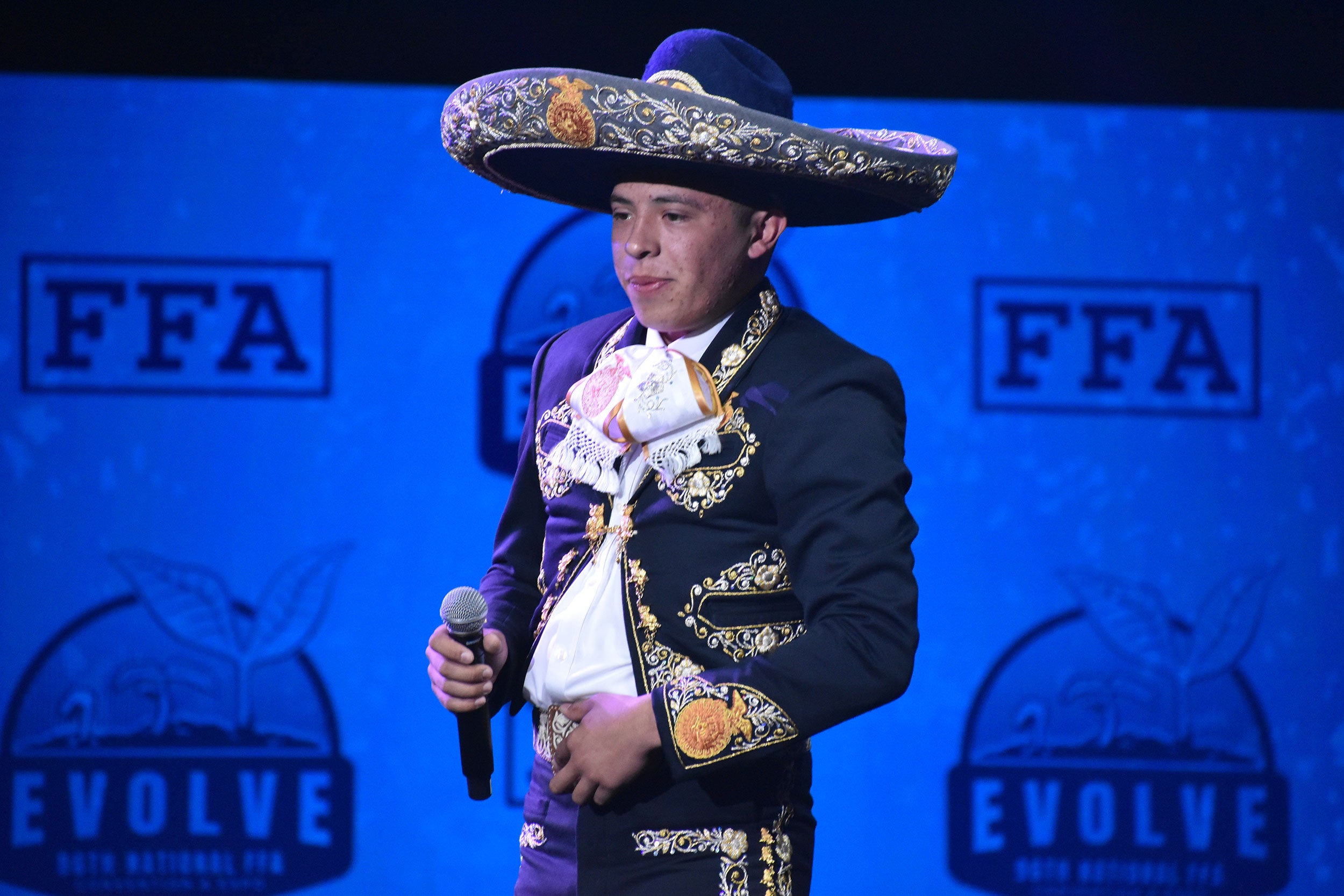

By the time nationals arrived, Soto was fully committed to the experience. Unfortunately, his father was unable to attend while in Mexico caring for a family member.
However, his brother Leo traveled with him, acting as his manager, helping with his suit and hats. At first, the performances were smaller, taking place at the Hall of Gardens and other venues around Indianapolis. But then, he received an even bigger opportunity — the chance to perform on the main stage at Lucas Oil Stadium.
“This is really happening,” he thought, almost dumbfounded. “You’re going to perform in front of 80,000 people.”
The National FFA Talent program began in 1930 with the Marion County FFA Chapter band and has since become an indispensable part of the national convention.
“[Students] apply early in the year, and then I go over those applications and select the top 25 to 50 students to come and join us here in Indianapolis,” wrote Sierra Milligan, National FFA talent director. “They compete in three different rounds within our talent competition.”
Soto made it to the final round of the national competition. Five finalists stood on stage as the winner was about to be announced. Country singer Alex Miller, a Garrard County FFA alumnus, a 2019 National FFA Talent participant and former American Idol contestant, and former FFA officer David Lopez were among the judges.
Out of the 28 National FFA Talent contestants, when they called his name, Soto was shocked.
“I don’t think it shows in the pictures of me crying, but I really — it shocked me a lot.”
In the excitement, he even threw his moño, the signature bow tie of a mariachi musician, into the audience. The moment was overwhelming.
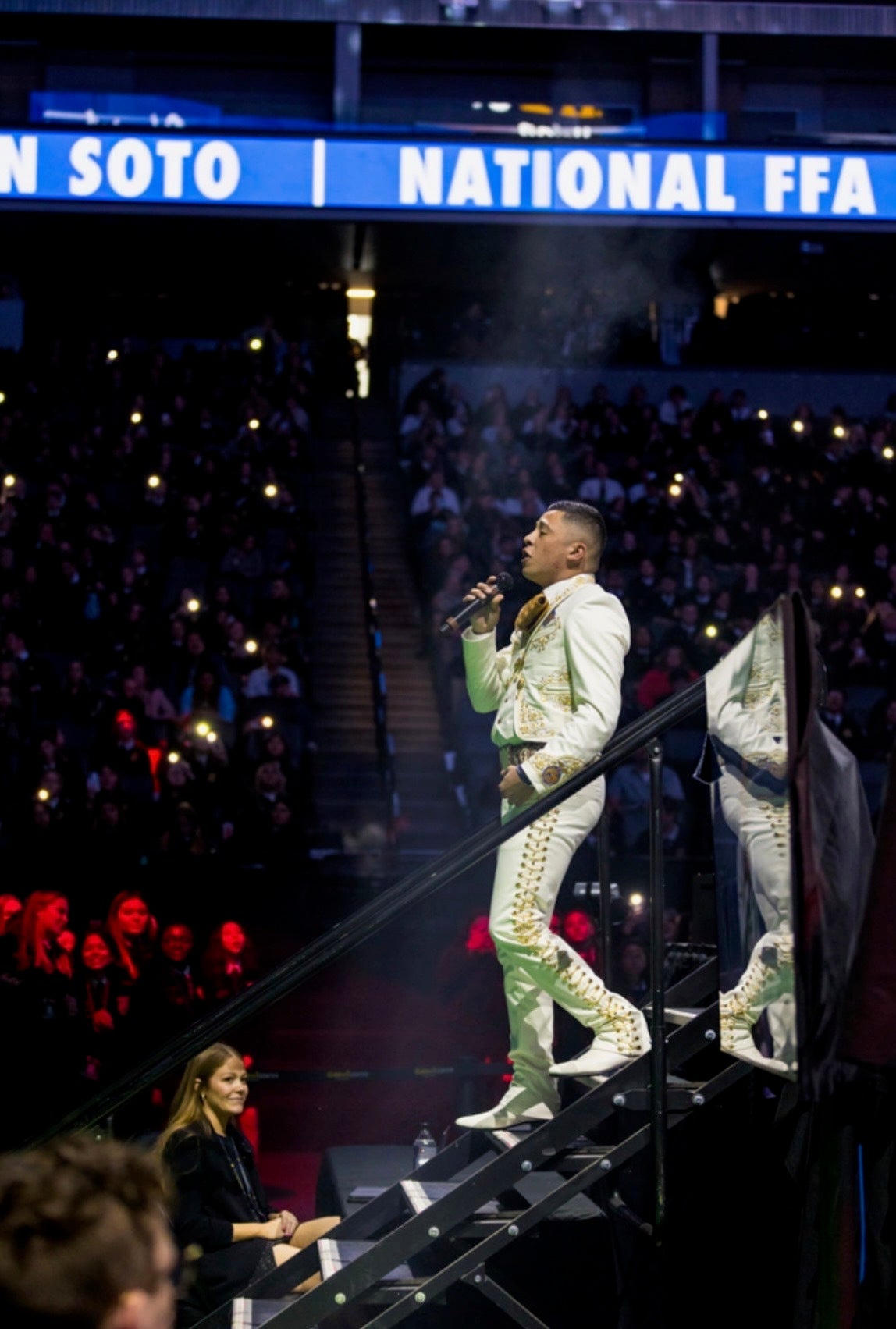

“We just got to this country like 15 years ago, and well — I’m actually doing something,” he said.
For Soto, the win wasn’t just about personal success. It was about representation.
“I think I was the first Hispanic to win the state level for talent,” he said. “And I’m pretty sure I’m the first from California to win nationals.”
His heritage in hand
For Soto, mariachi is more than just music — it’s a connection to his family and heritage.
His father’s story is a big part of that. Growing up in Mexico, his family struggled to find ways to make money and his dad often had to find creative ways to support his family. He started playing mariachi as a teenager, using his earnings to help buy food for his mother and siblings. Later, when the family moved to the U.S., he continued to work as both a musician and a landscaper.
Soto took that lesson to heart. When it was his turn to perform on the FFA stage, he knew he wanted to do it the right way. He didn’t just want to sing — he wanted to bring the full experience, with the suit, the instruments, and the energy that makes mariachi music unique.
FFA made that possible.
At conventions, Hispanic students would approach him, telling him how much his performance meant to them. Some, who had never been to Mexico due to their parents’ immigration status, told him that hearing his music helped them feel connected to their culture.
Others, like one student from Kansas, said his songs helped them feel closer to a father they had never met.
That impact stuck with him.


After high school, Soto had a decision to make. He loved mariachi and landscaping, but he had always wanted to pursue a career in law enforcement. Now, he’s attending Santa Rosa Junior College, working toward a degree in administration of justice with the goal of becoming a police officer.
FFA played a big role in that decision.
“To me, it really doesn’t matter who you are, where you come from or what you do,” Soto says. “We are all treated the same here, so it’s an honor that I can feel like home through presenting what I love to do and my passion.”
The organization helped him develop leadership skills, build confidence, and connect with his community. Even though his path is leading him outside of agriculture, he still feels a strong connection to FFA.
“I know kids that are still involved in FFA, even though they want to be doctors, nurses, or teachers,” he said. “It’s just a really cool thing to know about.”
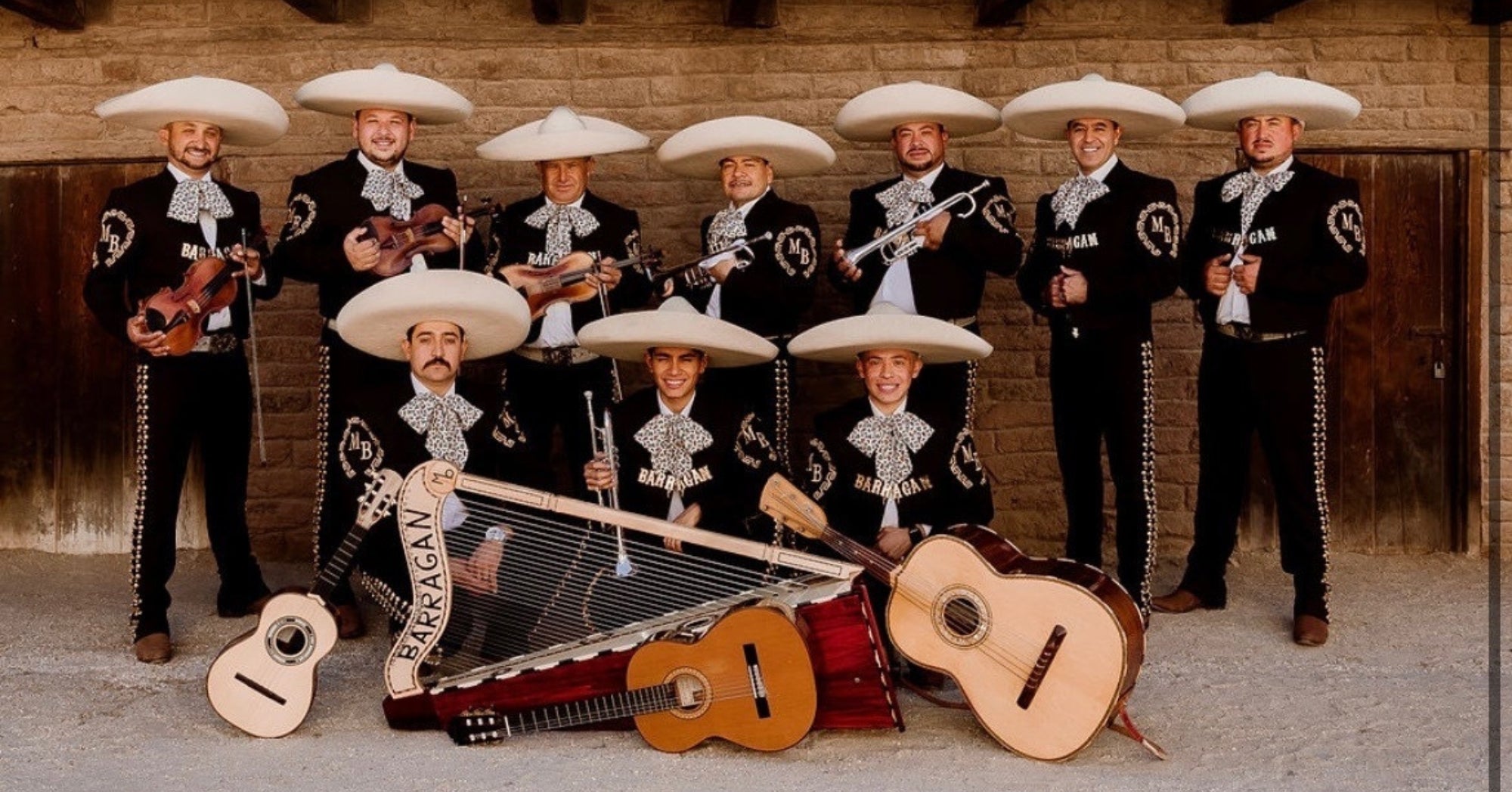

And as for mariachi? He’s not leaving it behind.
He’s already performed at the California FFA Convention again, this time as a paid guest. He hopes to return to nationals in the future, possibly as a judge. His suits — now two custom-made FFA-themed mariachi outfits — are also a testament to his journey.
Looking back, he never expected any of this. He didn’t expect to compete, to win, or to represent his culture on such a big stage. But that’s what FFA became for him—a place where he could take something personal and share it with a bigger audience.
And in doing so, he found a way to blend his roots with his future.
Heidi Crnkovic, is the Associate Editor for AGDAILY. She is a New Mexico native with deep-seated roots in the Southwest and a passion for all things agriculture.


:max_bytes(150000):strip_icc()/DSC_5569-scaled-e1745358337245-2048x1551-a1a093af80584792b8bb89e4f47d4926.jpg)
:max_bytes(150000):strip_icc()/103097774-2000-1043a1eebcd2426697f44faf1d9719a5.jpg)
:max_bytes(150000):strip_icc()/7021211UnverferthSeedRunner3755XL3_preview-38937bc35ec9441ab3433a428560f2ee.jpg)


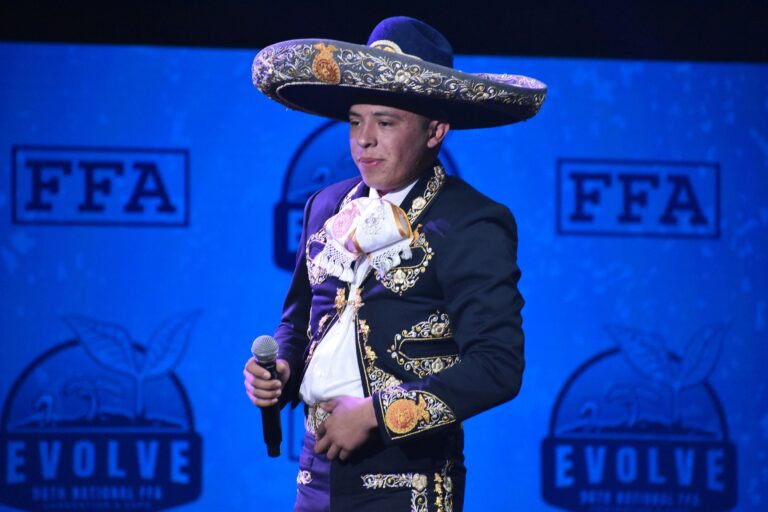
:max_bytes(150000):strip_icc()/52016494295_32bfe04e14_c-2-1afb28f81f99447ab23e8a01cf302cd3.jpg)
:max_bytes(150000):strip_icc()/Brendan-SmialowskiAFPviaGettyImages-Donald-Trump-Reciprocal-Tariffs-April-2-20252207589702-f18fb45cad3b49e792a16608653e4820.jpg)
:max_bytes(150000):strip_icc()/WheatField2-CloseUp-d3b78c85fe4b4e7abbb587b478569397.jpg)